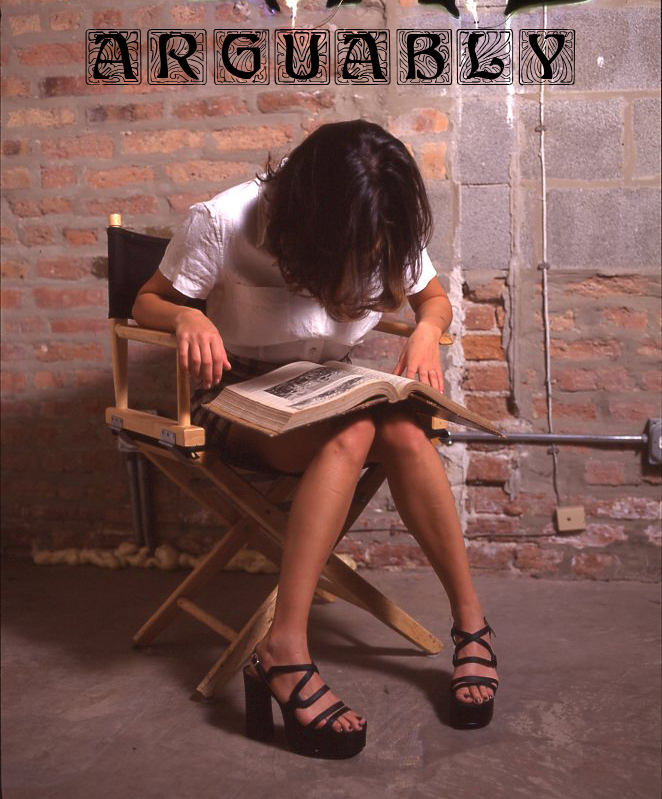|
Christopher Hitchens: Arguably – Essays by Christopher Hitchens (Twelve, Hachette Group USA, New York, 2011) The reason I began reading Christopher Hitchens had mostly to do with his wonderful books detailing new and entertaining glories of atheism and exposing the fraud of the Whore of Calcutta. I only slowly began to understand his principled support for armed intervention in the Mohammedan world and overcome my ingrained antipathies for past colonial injustices inflicted on the Arabs and my natural distaste for assorted lionhearted American warmongers. In fact there is no direct line from the odious British Empire to mullah totalitarianism. For much of the past century the Arab world was making tangible progress toward secularization. The unfortunate fact, however, is that many Arab secular movements such as Baathism were not so much tainted as thoroughly soaked in a fascist ideology shared with their erstwhile allies in Italy and Germany. The result was banana republic or rather petrorepublic dictatorships that disgraced the name of secularism. Was the embrace of fascism just the result of a hatred of all things English in the same sense that some in Ireland misguidedly sympathized with Germany and some in India with Japan during World War II? Given the events of the past few decades I think a case can be made that there is rather a deep intellectual affinity between fascism and the Mohammedan world view, that those who grow up imbibing the latter are thoroughly prepped for totalitarian social structures because they simply do not understand the premises of liberal secular society based on consent and respect for the individual (Neither do their goober enemies in the American heartland; but that’s another story). If the latter explanation is valid, then Hitchens was justified in supporting war against Mohammedanism (We should not make the bleeding heart mistake of insisting the war is just against individual dictators or outlaw jihadists who oppress or misrepresent their otherwise freedom loving coreligionists; the war is against an ideology that is fundamentally incompatible with any free society). Mohammedanism is totalitarian in that it shares three essential characteristics with the regimes created by Hitler and Stalin. It attempts to exercise complete control over the thoughts and beliefs of individuals. It suffers no limitations on the degree of violence that can be exercised against dissenters and the legions of its enemies, imagined and real. And finally it is totalizing; it demands the transformation of the entire world into a theocratic gulag in order for its social engineering to be successful anywhere. So from a global perspective contemporary Mohammedanism is the true heir to fascism and Stalinist communism. Hitchens’ early apprehension of this fact placed him in an uneasy fellowship with those for whom the only alternative is an equally illiberal American theocracy. But that shotgun marriage did not cause Hitchens to lose his sympathy for individual Iranians and Arabs, nor his proud commitment to atheism and civil liberties. Some of us would be amused to see the goobers and the Mohammedans at each others’ throats – amused, that is, if both weren’t armed to the teeth. Once we leave the heady forum of political courage, however, and circle back to more purely literary concerns, the bad old Hitchens rears up. Much of what he considers worthwhile literature just reminds me of the most boring afternoons in high school English classes. With Hitchens our horizons are further condensed to the disheartening world of crypto and not so crypto fascists, alcoholic papists and ground down revolutionaries who mostly offer up what the marketing departments of big time publishers hawk as “summer reading” or “beach books.” He strolls us through a middlebrow English culture from which you emerge slightly queasy and decidedly sated, somewhat as you may feel after eating day old blancmange. England’s literary glory died with the Anglo-Irish Jonathan Swift, the victim of censorship, smugness, Xtianity and perhaps the sheer exhaustion of the language. Hitchens gives it the old public school try when he daubs make-up on the corpse, but he writes an English whose lovely allusiveness is often undercut by troubles with pronominal reference. Nevertheless he is a decided cut above the average grub street scribbler. Journalists are upsetting to a philosopher. They serve up conclusions rather than reasoned arguments, and, in order to make their conclusions comprehensible to the semi-literate masses, they impregnate them with idées reçues, filling in the blanks with references to whatever events happen to be current. Hitchens’ ironic distance from his own policy statements makes the journalism passably tolerable.
|
Willis Domingo

There are naked women and big words inside. If you are under the age of 18, you do not belong here and should leave immediately by clicking here to exit. If you are an adult and do not wish to see erotic images of any kind or if you are simply stupid, click here to exit.

